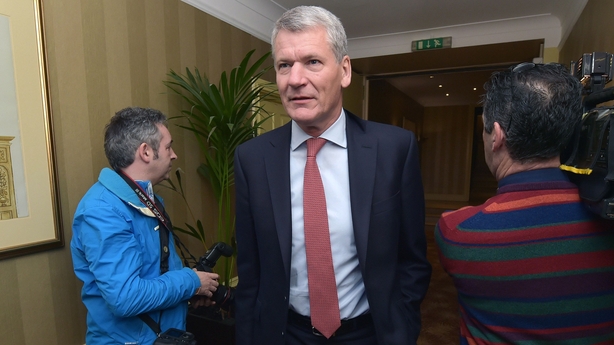UEFA president Aleksander Ceferin told Europe's top football clubs on Wednesday that "money does not rule" and warned its biggest leagues that he would not give in to blackmail as he promised to reshape the game in the region.
The Slovenian also reiterated in his opening speech at the UEFA Congress that he would not allow the creation of a closed "Super League", which some of the region's biggest clubs have discussed.
Relations between UEFA and many domestic leagues in Europe have become strained in recent months, with many of the smaller nations angry that the four biggest leagues, including the Premier League, secured four places each in the Champions League group stage from 2018 to 2021.
The changes were implemented shortly before Ceferin's election last September, after the biggest clubs had discussed forming a breakaway Super League.
European football faces a huge disparity between the top leagues such as England's Premier League and Germany's Bundesliga and the smallest ones, which struggle with poor revenues, falling attendances and financial difficulties.
The Premier League also annoyed UEFA by scheduling Stoke's rearranged visit to Manchester City last month on the same evening as two last-16 games in the Champions League, including Barca's 6-1 win over Paris St-Germain.
"To some clubs I should say...there will be no closed league. It's as simple as that. That is not in line with our values and ideas," Ceferin said.
"We will never give in to the blackmail of those who think they can manipulate small leagues...because they think they are all powerful because of the astronomical values they generate."
"We will work together to rectify the imbalances as much as possible - problems and imbalances for which you are also responsibly," he added. "Sharing must not be considered a dirty word."
The Congress later approved measures restricting the president and executive committee members to a maximum of three four-year terms each.
"UEFA is not here to accumulate wealth while (football associations) struggle to develop football in the furthest reaches of (their) territories."
It also decided that venues for the Champions League and Europa League finals would be selected through what Ceferin described as a "fully objective manner through a transparent bidding procedure".
Ceferin added: "Surprising at it may seem, it was not always the case in the past."
Ceferin promised to distribute €1million to each of UEFA's 55 member associations as a "solidarity payment" following strong financial results from national team competitions such as UEFA EURO 2016.
"UEFA is not here to accumulate wealth while (football associations) struggle to develop football in the furthest reaches of (their) territories."
He said UEFA would sit down with the clubs, leagues and players to develop a "strategic vision" for European football over the next five years.
"This five-year plan will not be forced on you, it will not come out of the blue, as may have happened in the past," he told the UEFA Congress.
"It will not be drafted by some anonymous bureaucrat and his paper-pushers hidden away on the shores of Lake Geneva."

Speaking to reporters in Helsinki, the influential ex-Manchester United chief executive David Gill said: "There's a lot of sabre-rattling at the moment but I think common sense will prevail.
"For UEFA to have great competitions it needs thriving leagues to produce the teams, so I think there will be a sensible solution but that will unfold over the next few months."
Gill, a FIFA vice-president, was speaking shortly after his re-election to UEFA's executive committee, where he will be joined for the first time by Football Association of Ireland chief executive John Delaney.
The pair were among 11 candidates up for election, with eight seats up for grabs. Delaney received the second highest number of votes with 48, two fewer than Sweden's Karl-Erik Nilsson, while Gill came sixth with 40 votes from UEFA's 55 member associations.
But Football Association of Wales vice-president Kieran O'Connor, a relative newcomer to European football politics, was unsuccessful in his bid for an ExCo place, finishing last with only 11 votes.
The five other successful candidates were former Juventus and Poland star Zbigniew Boniek, German FA president Reinhard Grindel, Italian FA director Michele Uva, Dutch FA president Michael van Praag and Turkey's Servet Yardimci. They will serve four-year terms.

